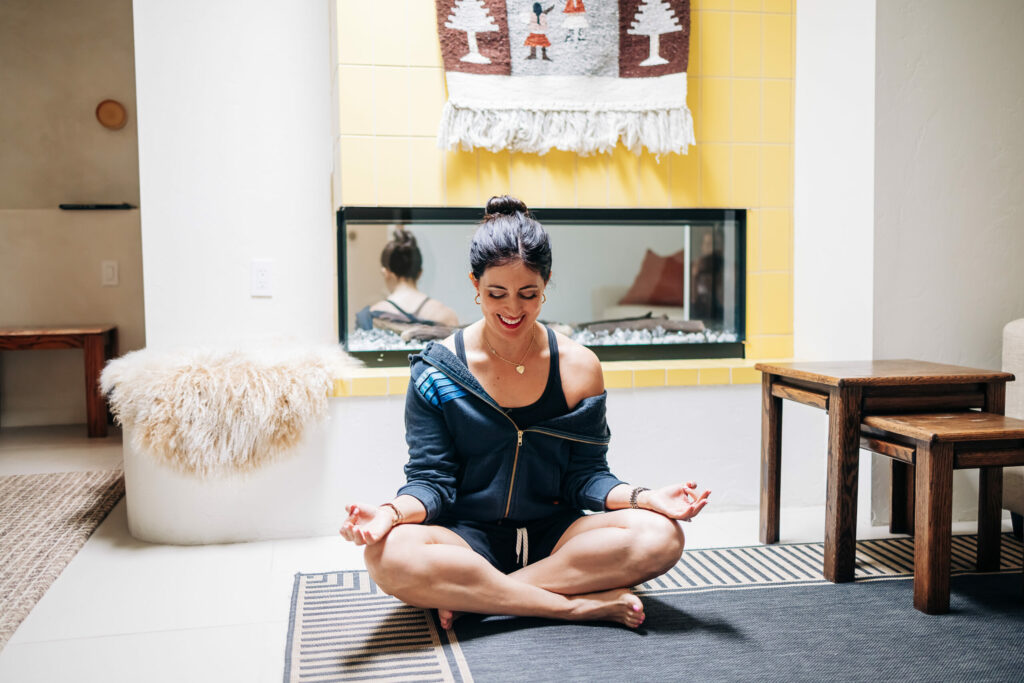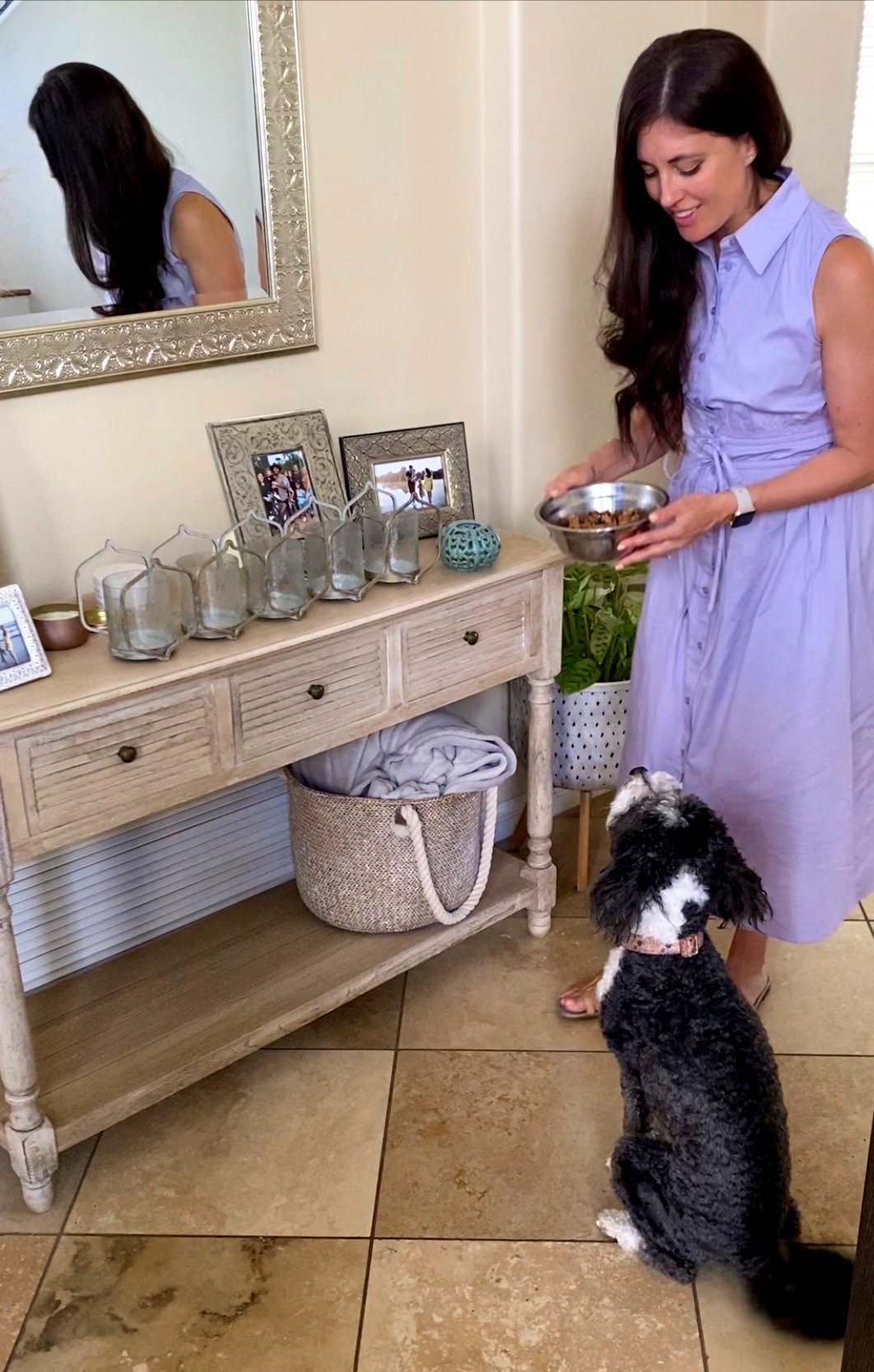Share some of my reflections on taking care of you when things are difficult.
Hi friends! I hope you spend a beautiful morning so far.
Today, I wanted to discuss a few difficult times and make an effort for yourself, even when you cross it. I prefer this post for Spain and I use Spain as a carrot of something to hope for, because we have gone through it here. It was a difficult year all around with children and school situations and marriage and a lot, so I use this for a reminder for me too.
It should also be mentioned here that I never like to be complainant, especially because I know that we all have variable levels of * hard. * The comparison of the sorrow is tough and that I try to be aware of the fact that simply because someone is more difficult or worse than you, it does not mean that it is not ok to feel like you.
Life does not always go as planned. We are all facing moments of sorrow, disappointment, illness, loss or overwhelming. Personal challenges are a normal part of human experience, but that does not mean that they are easy. In fact, it is during these difficult moments that it becomes too tempting to fall into a cycle of negativity, to disengage from the habits that support us or to engage in unhealthy ways to face.
Whether it’s digging screens, skipping training or eating emotionally to spend the day, we were all there. I went there. And what I learned – thanks to personal experience and to work with customers – is that even if we cannot always control our situation, we can control the way we react.
The implementation of healthy habits and a state of mind rooted in the rest positive does not consist in claiming that everything is fine. It is a question of supporting our bodies and our minds so that we can face difficult times with resilience and grace. Today, I wanted to share some of my strategies, so that you can feel independent, even in the storm.
Why positivity is important during a personal challenge
Positivity does not concern toxic optimism or ignore your feelings. This is to choose hope rather than helplessness and actively engage with tools that support your mental health and well-being.
When you adopt a positive psychology during difficult times, it can:
Reduce stress levels by taking off your nervous system out of combat or theft.
Help you stay motivated to make choices that support your long -term health.
Strengthen your immune system, improve sleep and promote healing.
Give clarity so that you can make better decisions and see new solutions.
How to stay healthy and positive in personal challenges
1. prioritize 30 minutes of movement per day
Even when life is heavy, moving your body can be one of the most powerful ways to manage stress and reset your state of mind.
The movement should not be intense or long – only 30 minutes of walking, gentle stretching, dance in your kitchen, or even yoga can stimulate endorphins, balance your mood and bring you into the present moment.
I like to consider movement as a moving meditation. It brings me back to my body and helps me treat emotions in a healthy way. If that is hard to start, simply define a timer for 5 minutes. Often, that’s all you need to get momentum.
2. Nouring your body with real food
When we are overwhelmed, it is easy to reach foods of convenience or to skip fully meals. But nourishing your body with real and nutrient -rich foods helps stabilize your blood sugar, which supports mental health and mood regulation.
Focus on whole foods: lean proteins, healthy fats, many vegetables rich in fiber and water. Bonus points to eat proteins and vegetables before carbohydrates to support the balance of blood sugar.
It is not a question of perfection; It is a question of giving your body the fuel it needs to sail difficult moments with more strength and energy.
3. Practice daily gratitude
Even in the darkest seasons, there is always something to be grateful. Gratitude has been shown to increase happiness, the decline in depression and moves our state of mind from lack of abundance.
Try this: every night before bed, note three things you are grateful. It can be small (your cup of coffee, a kind word from a friend) or big (your health, your children, a safe place to sleep). Gratitude reclassions your brain to seek good, which is particularly useful during difficult times.
4. Create a support system
You are not supposed to make life alone. One of the best ways to stay healthy with personal challenges is to create a support network on which you can rely.
It might look like:
Talk to a therapist or a coach
Reach out to a confidence friend
Join an online support community or in person
Connection is medicine. Do not wait to feel better to reach out; Sometimes tearing your hand is the way you start to feel better.
If you are looking for tools, useful supplements and non-toxic lifestyle upgrades, I have a list of my favorite well-being resources that can support you through difficult times.
5. Use mindfulness tools to reduce stress
It is easy to feel overwhelmed when you are caught in the “What Ifs” loop and the worst scenarios. This is why bringing you back to the present moment is so powerful.
Mind consciousness does not have to signify still sit for an hour.
This can be:
Take 10 deep breaths
Use of an essential oiling oil
Meditate
Spend time in nature
These tools help you reduce stress by calming the nervous system and increasing self -awareness. Even a few minutes can make a big difference in what you feel.
6. Set realistic objectives (and celebrate small victories)
During difficult times, it is important to set realistic objectives that feel feasible, and non -crushing. If your usual task list is impossible, give yourself the permission to retreat.
Maybe it’s:
Drink 8 glasses of water today
Take a 10 -minute walk
Nourish
Each small victory creates momentum. And celebrate you to introduce yourself – even if it is in a small way – is a beautiful form of self -respect.
7. Focus on sleep and rest
Sleep is fundamental to healing, hormonal balance and emotional regulation. When we are stressed or we are going through difficult times, it is easy for sleep to be disturbed, either because our mind is being raced, or we remain too late to escape.
Create a wind routine that supports rest:
Sun Lights
Turn off the screens 1 hour before bedtime
Try blue light blockers before bedtime
Read something
Get 7 to 9 hours of quality sleep helps your body to recover and gives you energy to deal with everything in front of you forcefully.
8. Allow yourself to feel
This one is huge. Staying positive does not mean avoiding your feelings – it means allowing them to cross so that they are not stuck.
Let yourself be cry. Be angry. Feel sad. Emotions are not the enemy. Deleting them can cause long -term physical and emotional pain.
Try this: instead of labeling emotions like good or bad, asking yourself, what is this emotion that is trying to tell me? Sometimes sitting with sensation is the first step in healing.
Whatever season you are in, know this: You are strong, you are not alone and you are allowed to support yourself in any way you need.
Staying healthy and positive in personal challenges is not to be perfect; It’s about meeting with compassion, using tools that reduce stress and staying connected to your values.
It is useful to remember that everything is temporary and that simple healthy habits can support us for the long term.
Send you a hug, friends.
xoxo
Gina


















